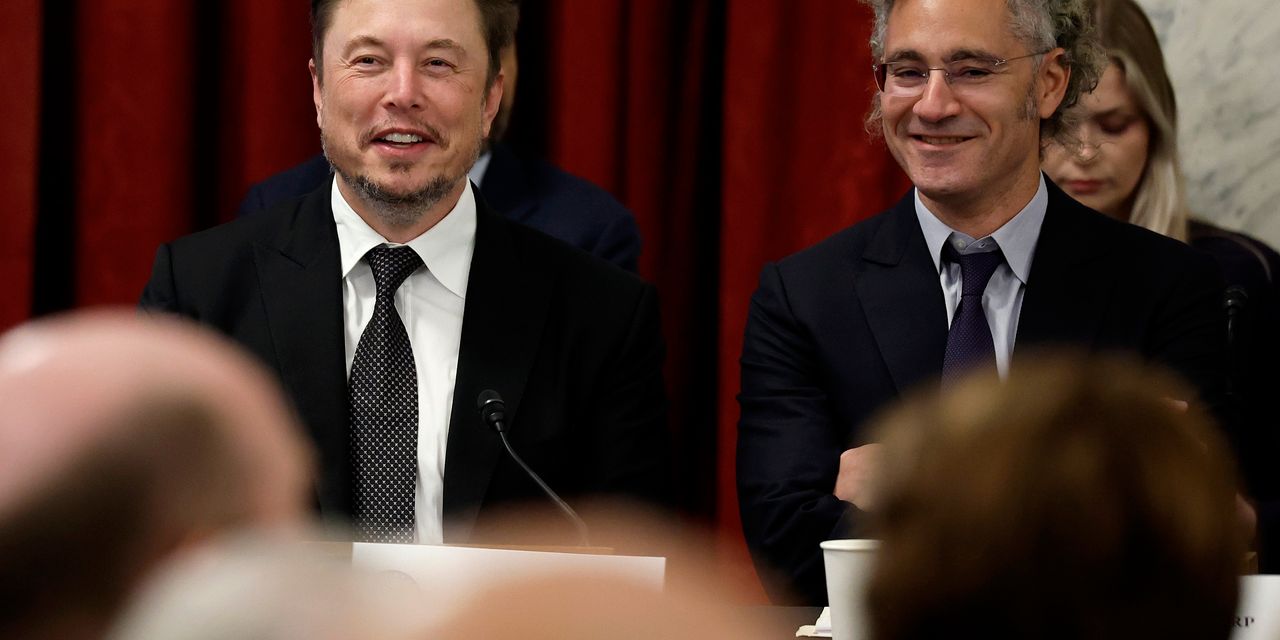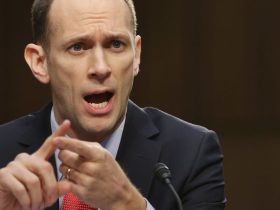Executives from some of the nation’s top tech companies convened Wednesday at the U.S. Senate for a closed-door hearing on artificial intelligence, as interest in Congress to regulate the nascent technology has grown in recent months.
Attendees, including Tesla Inc.
TSLA,
CEO Elon Musk, Microsoft Corp.
MSFT,
co-founder Bill Gates and Meta Platforms Inc.
META,
CEO Mark Zuckerberg, were on Capitol Hill at the behest of Senate Majority Leader Chuck Schumer, to help lawmakers understand the implications of new developments in AI.
“This meeting may go down in history as being very important for the future of civilization,” Musk said to reporters on Capitol Hill as he left the meeting. “Sen. Schumer did a service to humanity here, and I think something good may come out of this.”
The Tesla CEO endorsed the creation of a new federal agency to oversee AI development “which you can think of as a referee to ensure that companies take actions that are safe and in the interest of the general public.”
Musk has previously warned that the development of AI could pose an existential risk to humanity, signing an open letter in March that warned it could lead to the development of “nonhuman minds that might eventually outnumber, outsmart, obsolete and replace us,” as well as the spread of misinformation and mass unemployment.
Schumer told reporters following the event that every participant believed that government is “needed to play a role in AI,” though there were “diverse views” on what that might look like.
“Congress must play a role, because without Congress we will neither maximize AI’s benefits, nor minimize its risks,” he said earlier Wednesday. “This is going to be one of the hardest tasks we undertake, because AI is so complex, will impact nearly every area of life, and is evolving all the time.”
Other attendees include OpenAI CEO Sam Altman, Microsoft CEO Satya Nadella, Google parent Alphabet Inc.
GOOGL,
GOOG,
CEO Sundar Pichai and Nvidia Corp. CEO
NVDA,
Jensen Huang.
The event was closed to the public to promote the frank discussion of views.
Former Google CEO Eric Schmidt told reporters as he entered the meeting that he planned to tell lawmakers that AI “is a very powerful tool and they should be ready.”
The meeting followed several public hearings on the topic, most notably in the Senate Judiciary Committee, whose Democratic Chairman Richard Blumenthal of Connecticut and Republican ranking member Josh Hawley of Missouri recently put forward a framework for a new law aimed at regulating AI.
The framework calls for establishing a licensing regime and regulatory body to oversee AI models in “high-risk situations,” ensuring a legal framework that would hold AI companies accountable for harms inflicted by the technology and disclosure requirements.
Schumer also invited leaders from the labor and civil rights movements as well as what he called “skeptics from inside the industry who have the necessary technical experience to help us understand the changes that might be needed.”
Despite this outreach, some of Schumer’s colleagues criticized the format of the hearing, both its non public nature as well as the list of invitees.
Democratic Sen. Elizabeth Warren of Massachusetts was critical of the nonpublic nature of the hearings, which enabled powerful leaders to air their views with little pushback, as senators weren’t allowed to ask questions other than in writing.
“There’s sitting in at a big table all by themselves, all the senators are to sit there and ask no questions,” she told reporters outside the meeting. “That’s the set up.”
Some in the tech industry were also critical of the invite list because it didn’t include enough leaders from smaller companies. Their fear is that tech’s biggest players, again, are leading the discussion and making the rules on billion-dollar markets they dominate, leading to fears of anticompetitive behavior.
“These forums are generally led by Big Tech,” Navrina Singh, CEO and founder of Credo AI Corp., a software company that provides corporate governance for AI, told MarketWatch. “We need more feedback from smaller companies and the impact on innovation.”
More than anything, lawmakers and civic leaders need to huddle on a regulatory roadmap as generative AI seeps into everyday life — from job displacement to creative content and civil rights, according to AI executives and policy makers.
Federal legislators like Schumer are trying to get a handle on the problem and act before the technology spirals out of control and disrupts society, as social media has on so many fronts. One AI scientist said her greatest concern was a lack of fully evaluating the risks based on current and future scenarios.
“The AI moment calls for a unique collaboration among government, civil society, academia, and industry,” Paul Lekas, senior vice president of global public policy and government affairs for the Software & Information Industry Association, said in a statement. “We believe a solid bipartisan consensus is emerging around key aspects of AI regulation.”
Added Resemble AI founder and CEO Zohaib Ahmed: “Ultimately, I’d like to see us [the public and private sector] work together to build a trusted, certified network of models and applications that can be applied by distribution channels.”
Read the full article here











Leave a Reply